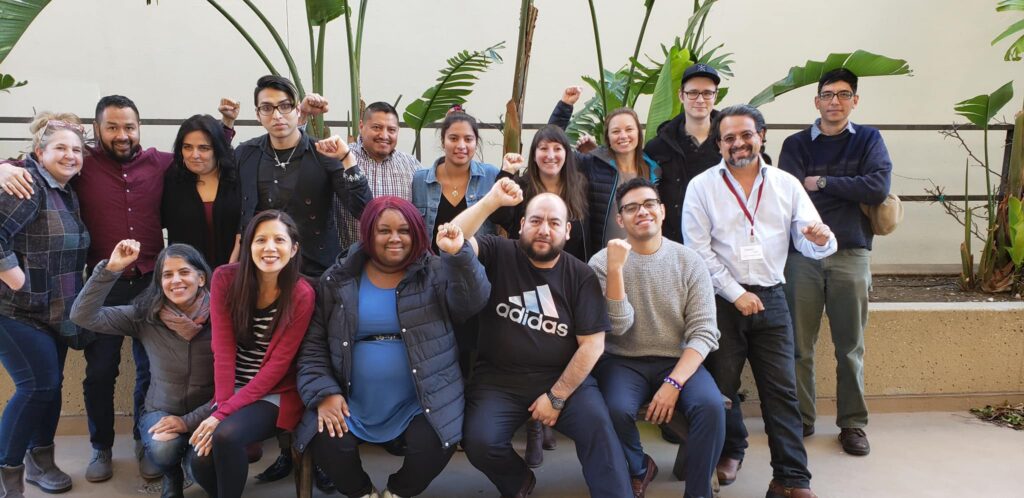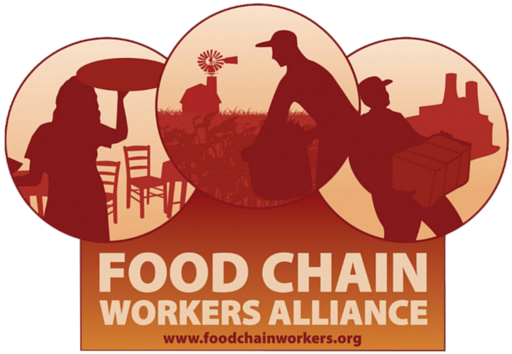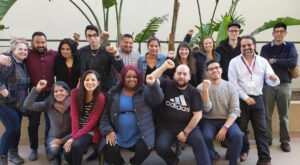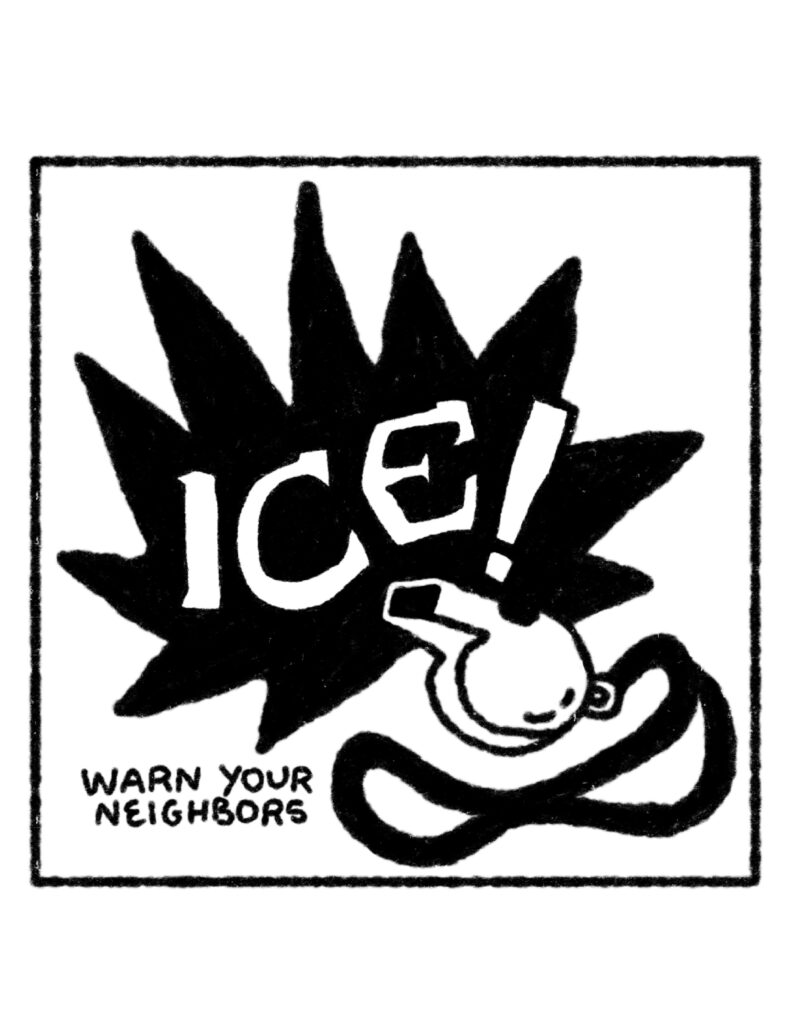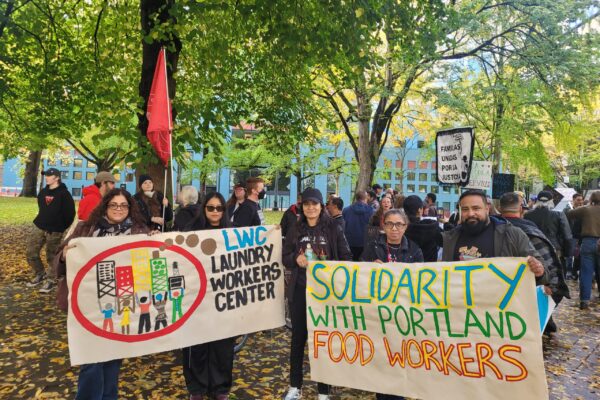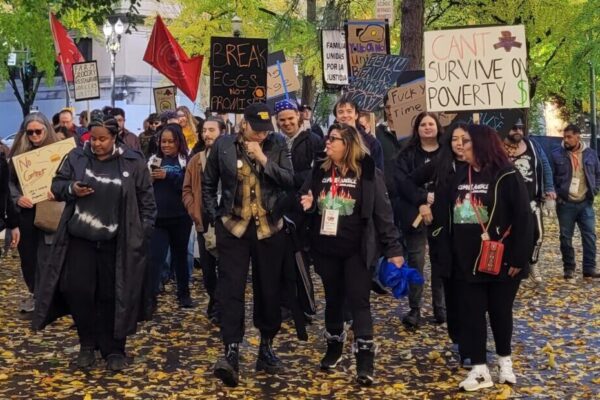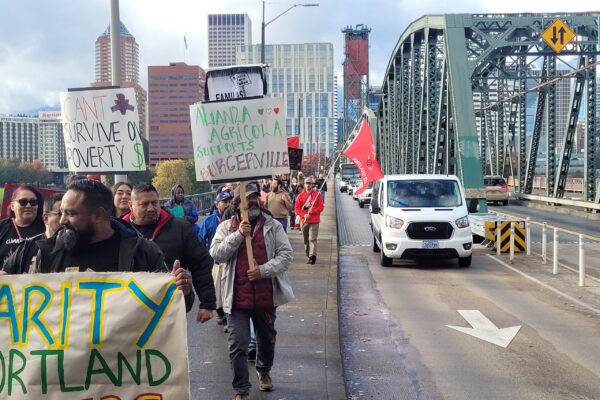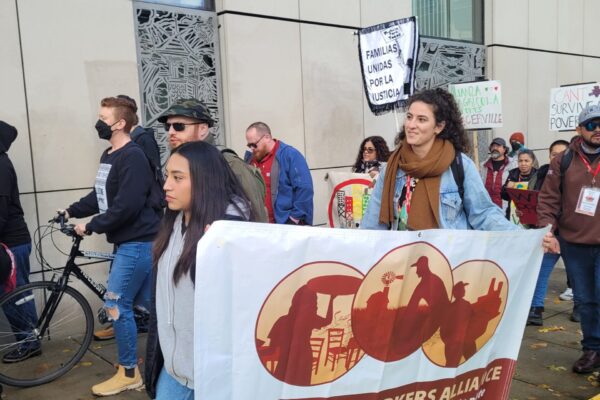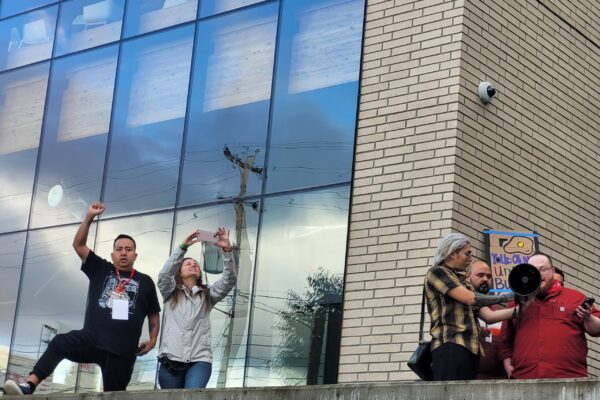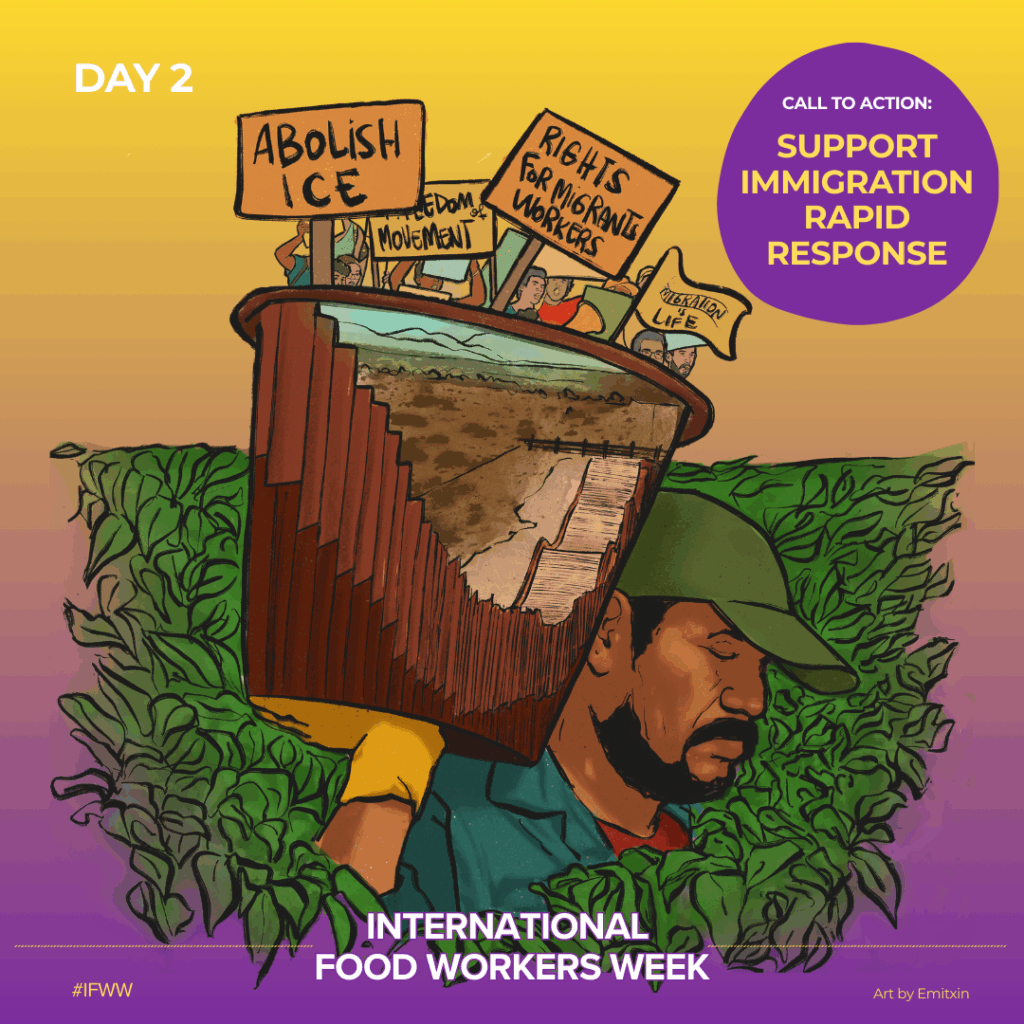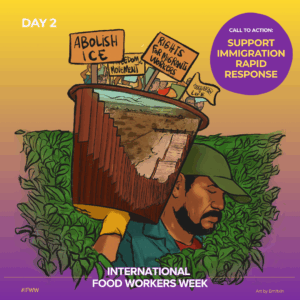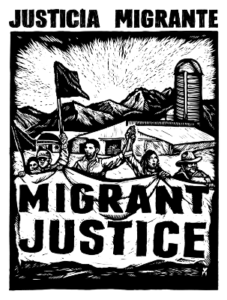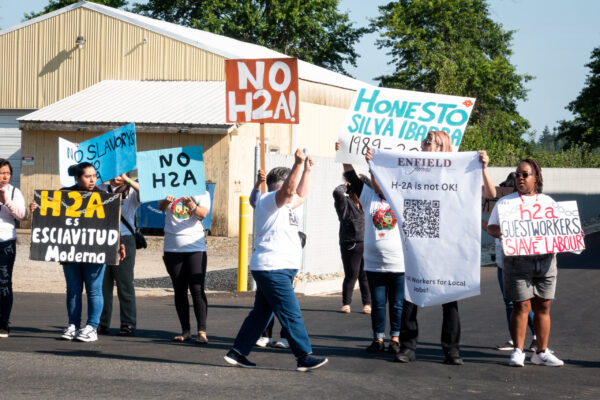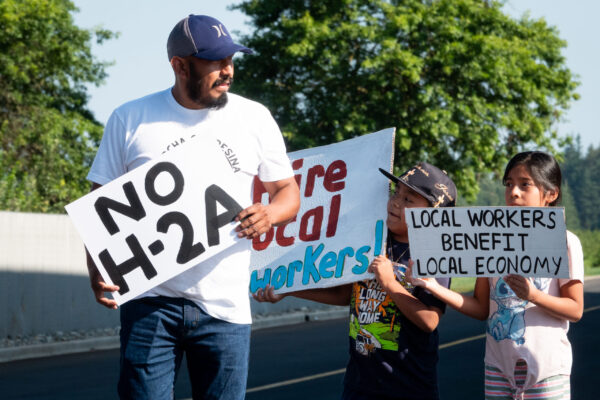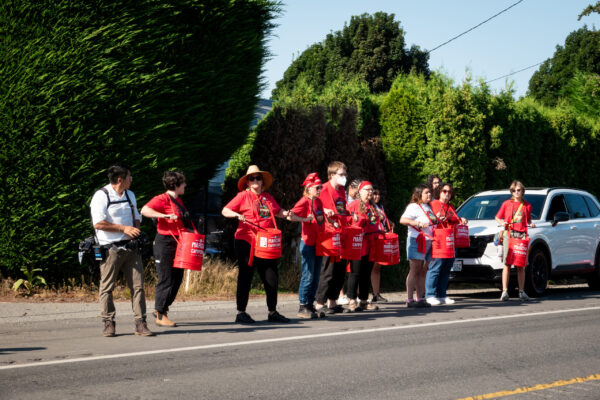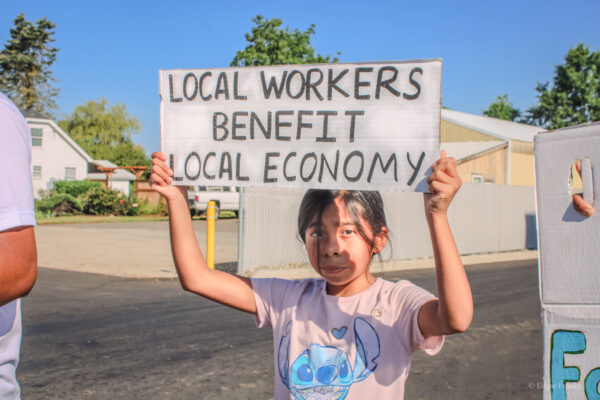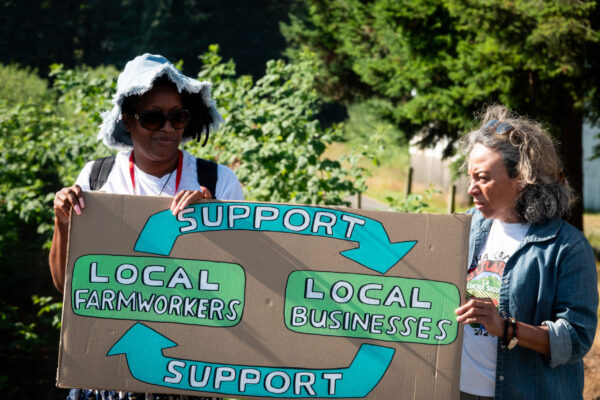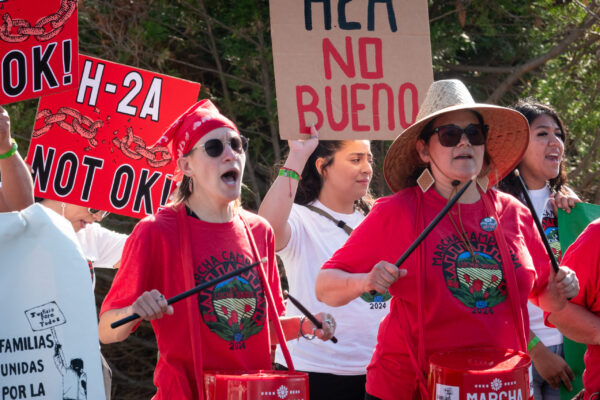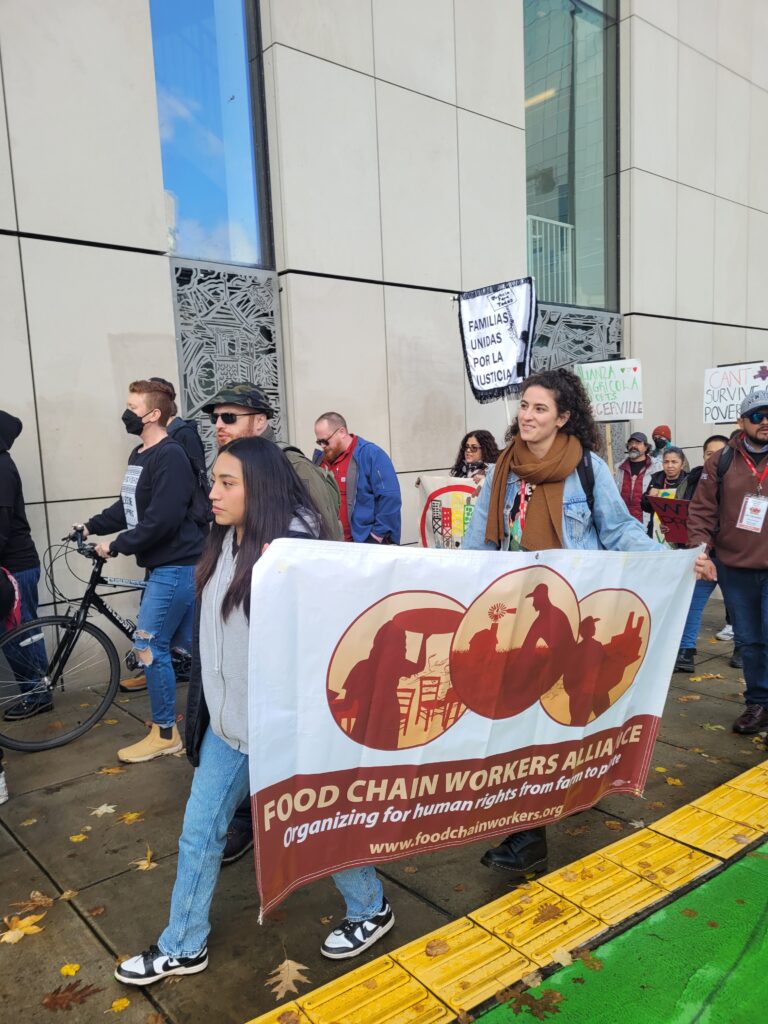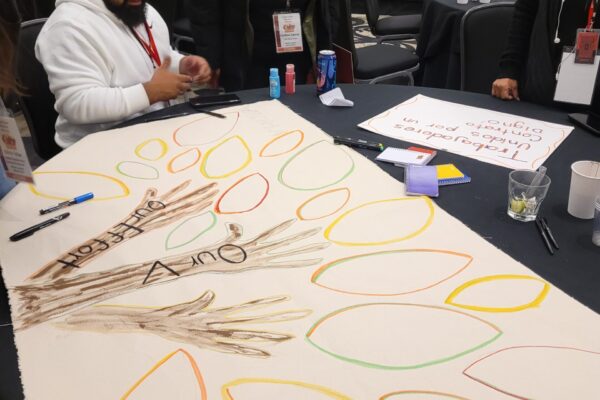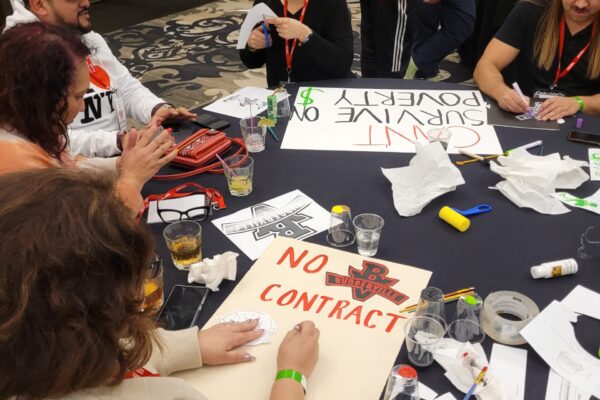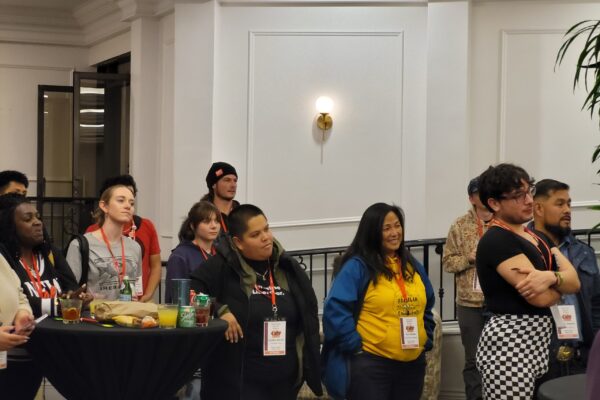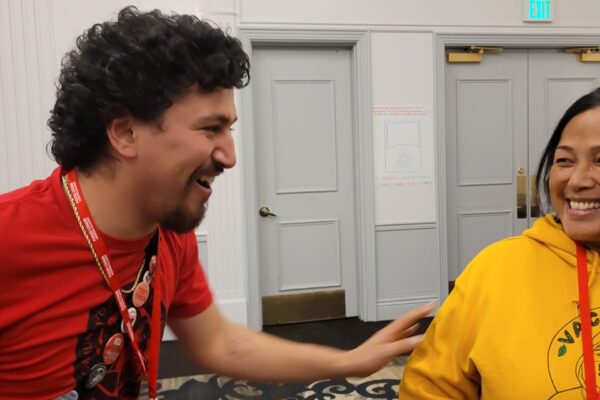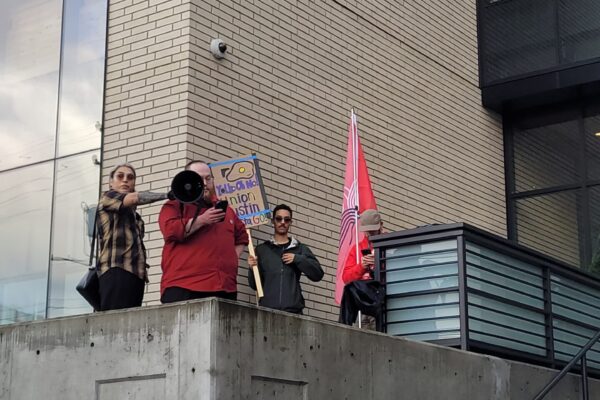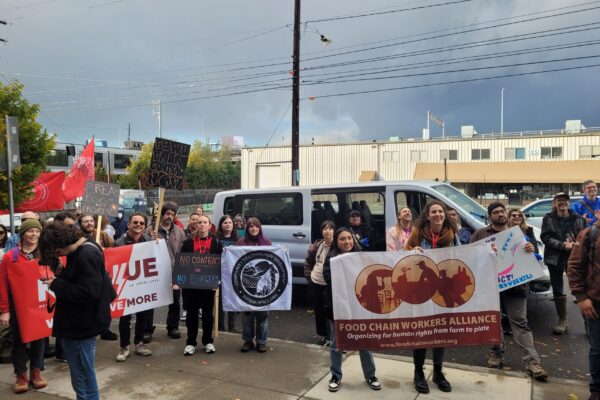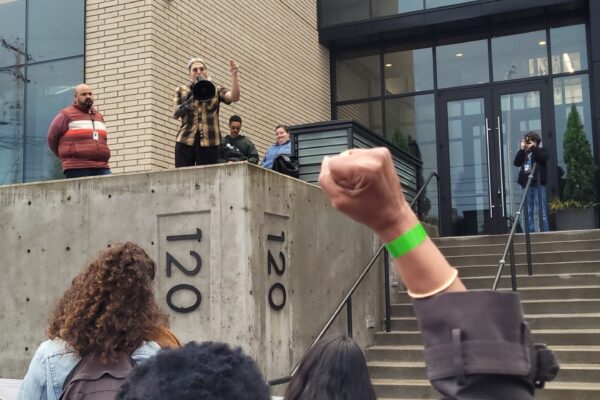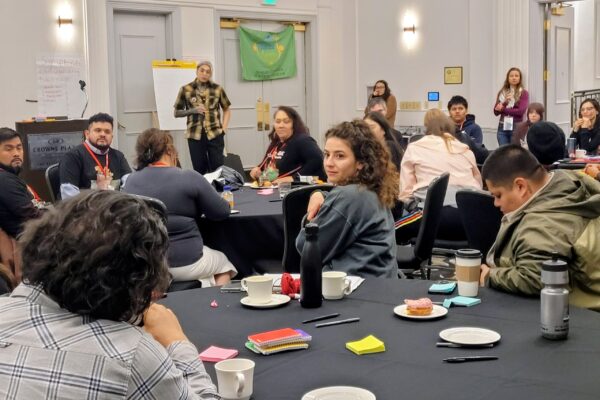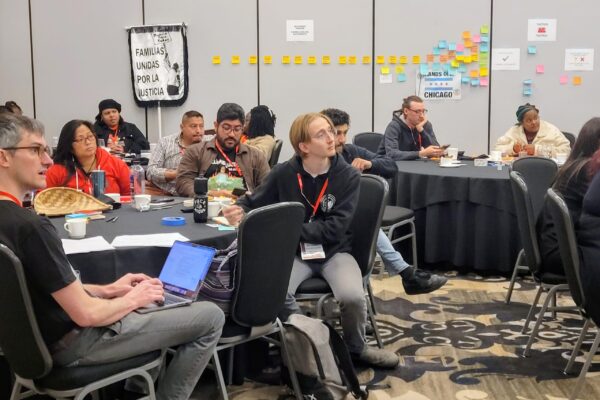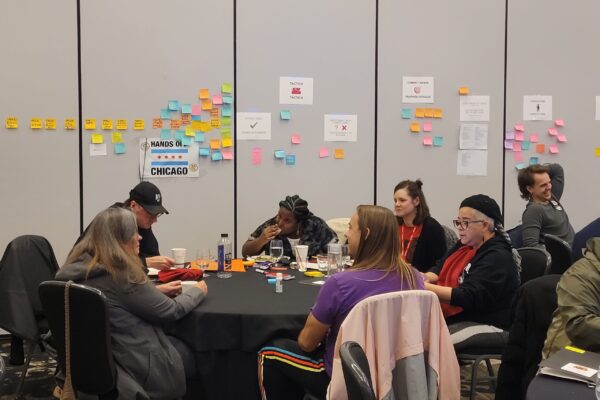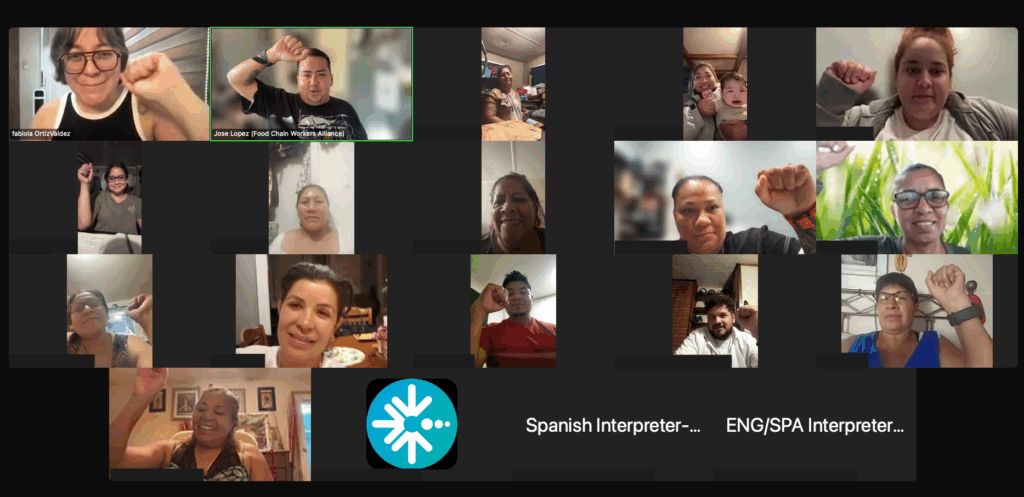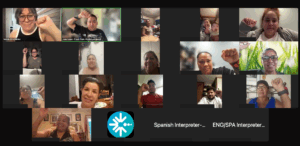We established #InternationalFoodWorkersWeek to honor food workers during the week of Thanksgiving, when most Americans are focused on grocery shopping, cooking, and eating.
At the grocery store, we think carefully about which products are the best value or quality. But we rarely consider how that turkey actually got into the freezer case in front of us. How many people’s labor went into hatching, raising, slaughtering, processing, packing, storing, transporting, and stocking that turkey?
22+ million people working in the U.S. food system earn a median annual income of just $28,000. They experience high rates of wage theft, injuries, food insecurity, and a lack of healthcare. Many are immigrants. And in 2025, whether they have legal status or not, immigrants are being snatched from their communities in brazen, racist, sometimes unconstitutional attacks.
But ICE isn’t grabbing farmworkers, street vendors, and restaurant workers so that those jobs can go to (white) Americans. Trump and his cronies want Black and brown immigrants to do this hard labor. They just want to control them and exclude them from the society their work supports.


That’s one reason we’re seeing so much new legislation around the H-2A program. H-2A provides temporary visas for foreign nationals seeking seasonal agricultural jobs on U.S. farms.
“Hosting H-2A workers costs a lot of money,” said FCWA member Alfredo “Lelo” Juarez Zeferino in 2024, “but companies would rather do that than pay local workers a better wage, because of the control they have over them.”
Under H-2A, workers mostly live on the farms where they work, in employer-provided housing that can be crowded, dirty, and non-functional. They are isolated from the local community and tied to an employer who can send them home at a moment’s notice. These workers have little incentive to speak up about conditions — and conditions are getting worse. The Trump administration just lowered the national prevailing wage for H-2A workers and for the first time in history, employers are allowed to deduct rent from workers’ wages.
H-2A impacts local farmworkers too. In Washington State, FCWA members Familias Unidas por la Justicia and Community to Community Development have watched local workers lose jobs year after year as H-2A expands in their state.
For all these reasons and more, FCWA and our members in the agricultural sector have vehemently opposed proposals to expand H-2A. In fact, we’ve been opposing the Farm Workforce Modernization Act for years, and it has failed twice before.
For Day One of International Food Workers Week, we’re asking that you OPPOSE any legislation that aims to expand the H-2A program, mandate use of E-Verify, or offer “paths to citizenship” that require YEARS of hard labor before gaining status. C2C and FUJ are specifically calling on all labor advocates to oppose the following bills:
Farm Workforce Modernization Act (HR 3227)
Sponsor: Zoe Lofgren (D-CA)
Co-Sponsors: Dan Newhouse (R-WA), Michael K. Simpson (R-ID), Jim Costa (D-CA), David G. Valadao (R-CA), Adam Gray (D-CA), Salud O. Carbajal (D-CA), Maria Elvira Salazar (R-FL), Josh Harder (D-CA), Eugene Simon Vindman (D-VA)
Dignidad (Dignity) Act (HR 4393)
Sponsor: Maria Elvira Salazar (R-FL)
Co-Sponsors: Veronica Escobar (D-TX), Michael Lawler (R-NY), Adriano Espaillat (D-NY), David G. Valadao (R-CA), Hillary J. Scholten (D-MI), Dan Newhouse (R-WA), Susie Lee (D-NV), Mike Kelly (R-PA), Adam Gray (D-CA), Brian K. Fitzpatrick (R-PA), Salud O. Carbajal (D-CA), Gabe Evans (R-CO), Mike Levin (D-CA), Marlin A. Stutzman (R-IN), Nikki Budzinski (D-IL), Don Bacon (R-NE), Laura Gillen (D-NY), Young Kim (R-CA), Jake Auchincloss (D-MA), Mario Diaz-Balart (R-FL), Lori Trahan (D-MA), James R. Baird (R-IN), Thomas R. Suozzi (D-NY)
Bracero Program 2.0 Act (HR 4367)
Sponsor: Monica De La Cruz (R-TX)
Co-Sponsors: Randy K. Weber (R-TX), Roger Williams (R-TX)
Moving H-2A to the Department of Agriculture Act (HR 1891)
Sponsor: W. Gregory Steube (R-FL)
